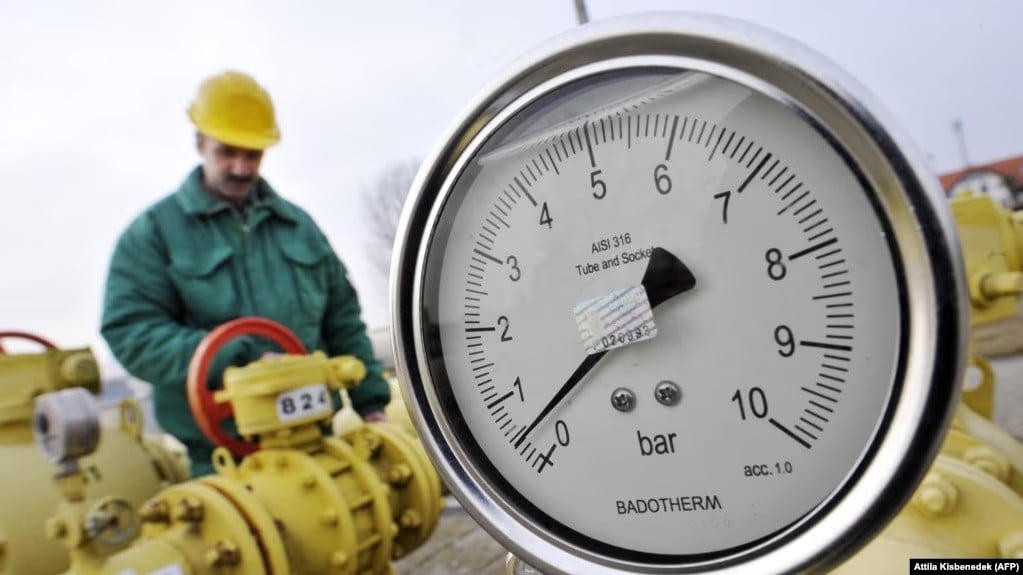 |
| Russia's energy and fuel complex is still operating stably. (Source: AFP) |
World economy
Global gas demand growth will slow
The International Energy Agency (IEA) said on October 10 that global gas demand growth will slow significantly in the medium term (2022-2026). This comes after a decade of strong energy demand growth, in which gas contributed about 40% to the growth of key energy supplies worldwide.
“Despite easing market tensions in the first three quarters of 2023, gas supplies remain relatively tight and prices continue to be volatile, reflecting the delicate balance in the global gas market,” the IEA said in its latest Medium-Term Gas Report 2023.
The agency noted that overall gas consumption in Asia -Pacific , Europe and North America markets will decline in the medium term due to rapid deployment of renewable energy and improved energy efficiency standards. Fast-growing Asian economies, as well as gas-rich countries in Africa and the Middle East, will lead global gas demand growth.
The IEA notes that for European members of the Organisation for Economic Co-operation and Development (OECD), gas demand is forecast to fall by 5% by 2023. This is largely driven by lower gas flaring in the power sector, which is down nearly 15% amid rapid expansion of renewable energy.
Also in this report, the IEA once again called on countries to reduce gas demand in a structural way, through measures to improve energy efficiency, accelerate the deployment of renewable energy and heat pumps, as well as change usage habits. (THX)
US economy
* According to Minneapolis Federal Reserve Bank President Neel Kashkari, the Fed is on track to control inflation without pushing the economy into recession.
After raising interest rates to a 22-year high, the Fed has recently slowed the pace of increases, citing data needs. Mr Kashkari said the US economy had a soft landing, with inflation under control and the economy avoiding recession. (AFP)
* Profits of major US retail banks could rise in the third quarter of 2023 , while investment banks still face a decline in deal financing activities, according to analysts.
JPMorgan Chase kicks off the big US bank earnings season, with London Stock Exchange Group (LSEG) estimating the bank's earnings per share (EPS) rose nearly 25% year-on-year.
Goldman Sachs and Citigroup are expected to report the biggest profit declines, with declines of 35% and 26%, respectively. Morgan Stanley's EPS is also forecast to fall. (Reuters)
Chinese economy
* China aims to increase its total computing capacity by more than 50% by 2025 , according to a plan announced by Chinese officials on October 9, as the government focuses heavily on innovations in supercomputing and artificial intelligence (AI).
Announced by six ministries, including the Ministry of Industry and Information Technology (MIIT), the plan aims to increase China's total computing capacity to 300 EFLOPS (a measure of computer performance) by 2025.
China's computing power reached 197 EFLOPS this year, up from 180 EFLOPS in 2022, the MIIT said in August. China's performance is second in the world after the United States, but the MIIT did not give details of the United States' performance. (Reuters)
* Lithium prices have fallen sharply globally, but have been particularly notable in China, where the key battery metal is trading at a large discount to the US.
After strong demand sent global lithium prices soaring last year, they have slumped amid weak electric vehicle (EV) demand and what is believed to be a large supply. However, despite the overall decline, lithium futures in China are about 35% cheaper than in the US .
The price difference offers traders a chance to profit, but also shows how difficult the outlook is for the top EV maker. (Bloomberg)
European economy
* The Financial Times reported on October 10 that the European Union (EU) is planning to announce anti-subsidy investigations into Chinese steel producers at a summit with the US this week.
The EU has agreed to join US efforts to protect its industries from competition, the article said, adding that the US has asked the EU to take action against Chinese steel producers, in return for the bloc avoiding the re-imposition of US tariffs on steel products like those imposed by former President Donald Trump. The Chinese Ministry of Commerce has yet to comment on the information. (Reuters)
* According to data released by the German Federal Statistical Office (Destatis) on October 6, the budget deficit of Germany - Europe's leading economy - in the first half of 2023 increased sharply compared to the same period last year.
Figures show that the total budget deficit of the German federal government, state and city governments and social insurance in the first half of this year was 76.1 billion euros ($80.4 billion), more than double the deficit of 32.9 billion euros in the same period last year.
Destatis said both budget revenue and expenditure increased this year, but the revenue increase (about 6%) was not enough to offset the increase in expenditure (about 11%). (TTXVN)
* On October 11, Kremlin press secretary Dmitry Peskov said that Russian President Vladimir Putin signed a decree forcing some Russian exporters to sell foreign currency .
The Kremlin spokesman added that “the rate of compulsory currency sales will be determined by the Russian Government” and that monitoring of compulsory foreign currency sales will be carried out by the Financial Supervision Service. (TTXVN)
* On October 11, speaking at the plenary session of the 6th Russian Energy Week (REW 2023) International Forum held at the Manezh Exhibition Center in Moscow, Russian President Vladimir Putin noted that Russia's energy and fuel complex is still operating stably, helping the country affirm its role in the global oil and gas market.
President Putin cited experts' assessments that from now until 2050, demand for natural gas will increase in all regions of the world except North America and Europe. Europe's share of global gas demand will fall by more than half - to 5%. In contrast, Asia's share will increase from 21% to 30%. (TTXVN)
* On October 10, the IMF adjusted its forecast for Ukraine's economic growth in 2023 to 2%, while expecting the country's economy to grow by 3.2% in 2024.
The upward revision in the latest outlook is due to stronger-than-expected domestic demand, as Ukrainian companies and households adapt to the conflict with Russia, as inflation eases and the foreign exchange market stabilizes, according to the IMF. The IMF, a key international lender to Ukraine, also expects the country's inflation to gradually decline to 17.7% in 2023 and to 13% in 2024. (VNA)
Japanese and Korean economies
* Recently, for the first time in 3 years, the Japanese government has allowed an increase in the fishing quota for snow crab, a winter specialty of this country.
Specifically, in early October 2023, a meeting between stakeholders on snow crab in the Sea of Japan was held and a decision was made to increase the total catch quota for this seafood in the coming year (from November 2023 to the end of March 2024) to 3,400 tons, an increase of 21% compared to the previous period.
Although the snow crab fishing quota has not yet fully recovered, this is a positive signal showing the effectiveness of efforts to balance conservation and exploitation of this marine resource. (TTXVN)
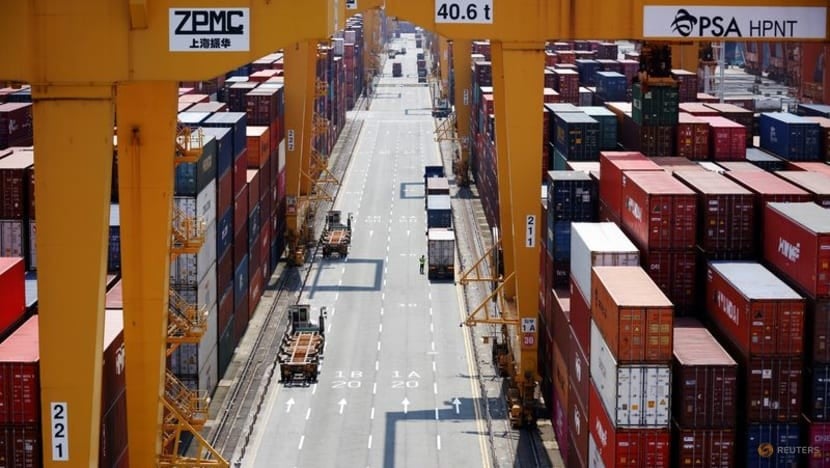 |
| The IMF has revised up South Korea's 2024 economic growth forecast due to the possibility that the economy will continue to stagnate next year. Photo: Pusan Port in Busan, South Korea. (Source: Reuters) |
* The IMF lowered its 2024 economic growth forecast for South Korea to 2.2%, down 0.2 percentage points from the forecast made in July.
The IMF revised its forecast due to the possibility that South Korea's economy will continue to stagnate next year, while China's economic recovery is slower than expected, oil prices are rising and other unfavorable external factors.
In addition, the fund also said that Japan's economic growth rate this year will surpass South Korea's for the first time in 25 years, since the Asian financial crisis. Previously, the IMF forecast the growth rate of the Korean and Japanese economies at 1.4% in July, but has now raised its forecast for Japan's economic growth by 0.6 percentage points, to 2%. (Reuters/TTXVN)
* The conflict in the Middle East has had little impact on the country's crude oil and natural gas imports , the Ministry of Trade, Industry and Energy (MOTIE) of South Korea said on October 9.
Most crude oil and liquefied natural gas (LNG) tankers bound for South Korea are operating normally in the Middle East, the statement said. (VNA)
ASEAN Economy and Emerging Economies
* Concluding the Cabinet meeting on October 9 on food prices, especially corn, sugar and rice, Indonesian President Joko Widodo announced that the government chose the import solution to curb price increases.
Commerce Minister Zulkifli Hasan said sugar and maize prices are increasing due to the current global situation, such as conflicts and the impact of El Nino phenomenon.
Mr. Zulkifli confirmed that Indonesia will import 250,000 tons of corn for livestock feed. Regarding sugar, the politician of the National Mandate Party (PAN) said the government will wait for prices to fall before deciding to import. (TTXVN)
* Malaysian Prime Minister and Finance Minister Anwar Ibrahim said that most currencies in the world will depreciate in 2023, including the Ringgit, due to the impact of the Fed's interest rate hike.
Prime Minister Anwar explained that the Ringgit's performance this year has been largely driven by external factors such as the strong US dollar due to higher US interest rates, as well as weaker-than-expected economic conditions in China.
According to Mr. Anwar, only by strengthening the domestic economy can the value of the Ringgit increase and Malaysia is currently applying the method of not raising the overnight policy rate (OPR) when taking into account the appreciation of the USD. (TTXVN)
* Thailand has approved investment applications worth a total of 41 billion baht ($1.1 billion) in projects including electric vehicle (EV) manufacturing, waste-to-energy generation, data centers, infrastructure, and tourism and travel facilities.
The projects approved by the BOI since the formation of the new government are mainly strategic sectors that will play a central role in Thailand's investment promotion policy in the coming years, said Narit Therdsteerasukdi, Secretary-General of the Board of Investment (BOI), at a press conference on October 11.
From January to August 2023, the BOI received investment promotion applications worth a total of 465 billion baht (US$12.7 billion), up 47% year-on-year. The number of applications also increased 33% to 1,375 projects.
BOI also adjusted the 5-year investment promotion strategy effective from January 2023. (THX)
Source



![[Photo] Prime Minister Pham Minh Chinh attends the groundbreaking ceremony of two key projects in Hai Phong city](https://vphoto.vietnam.vn/thumb/1200x675/vietnam/resource/IMAGE/2025/9/27/6adba56d5d94403093a074ac6496ec9d)









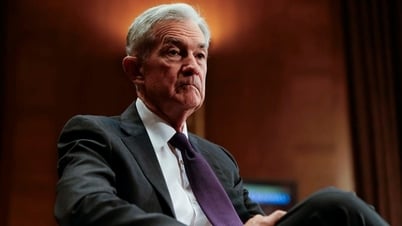
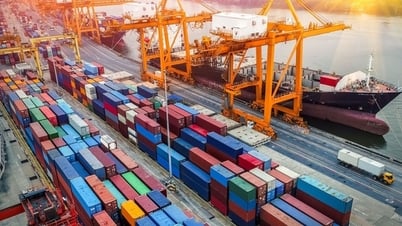





































































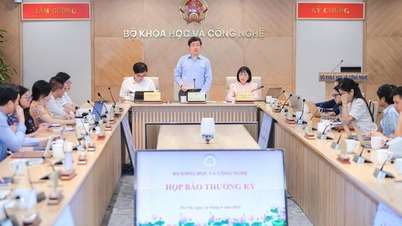






















Comment (0)